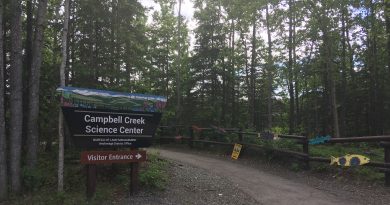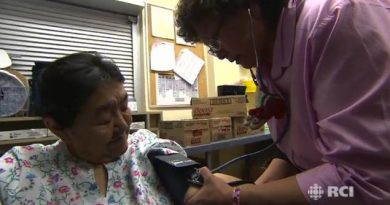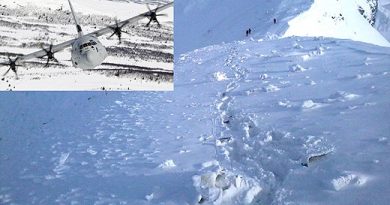Election Spotlight: Justice in Nunavik
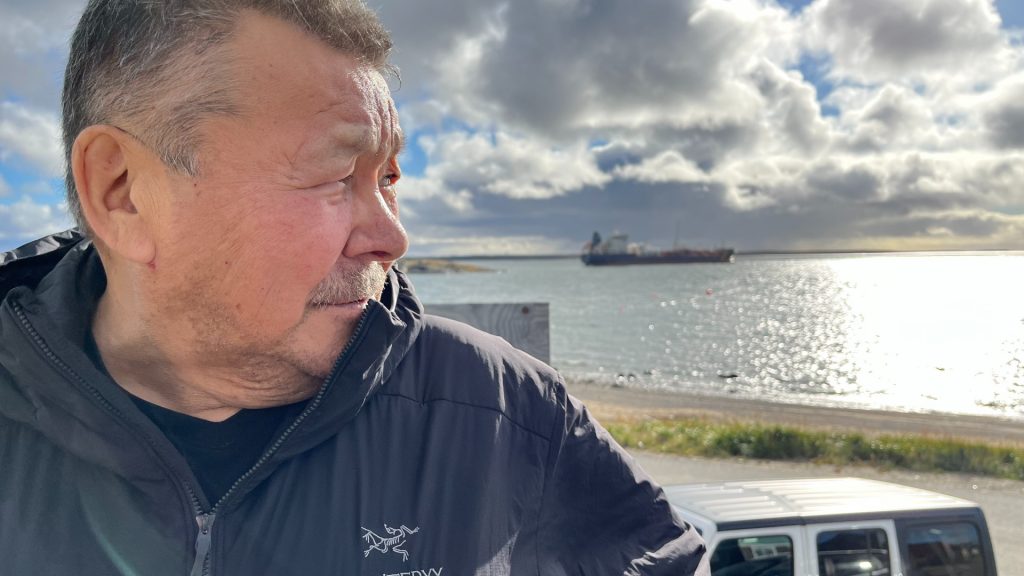
The dysfunction of the justice system in northern Quebec is increasingly making headlines, with everyone from Nunavik residents, to Inuit organizations, to Crown prosecutors, to the Quebec bar association speaking out about the untenable conditions and impact it’s having on everyone from victims to offenders to the wider community.
With a provincial election to be held in Quebec on October 3, Eye on the Arctic travelled to Nunavik to hear from Nunavimmuit about the transformations they want to see in the justice system, the obstacles to change and what they’re hoping to see from the new government when elected.
This is Part 1 of our special election coverage.
For Part 2 on the Health System in Nunavik, click here and here.
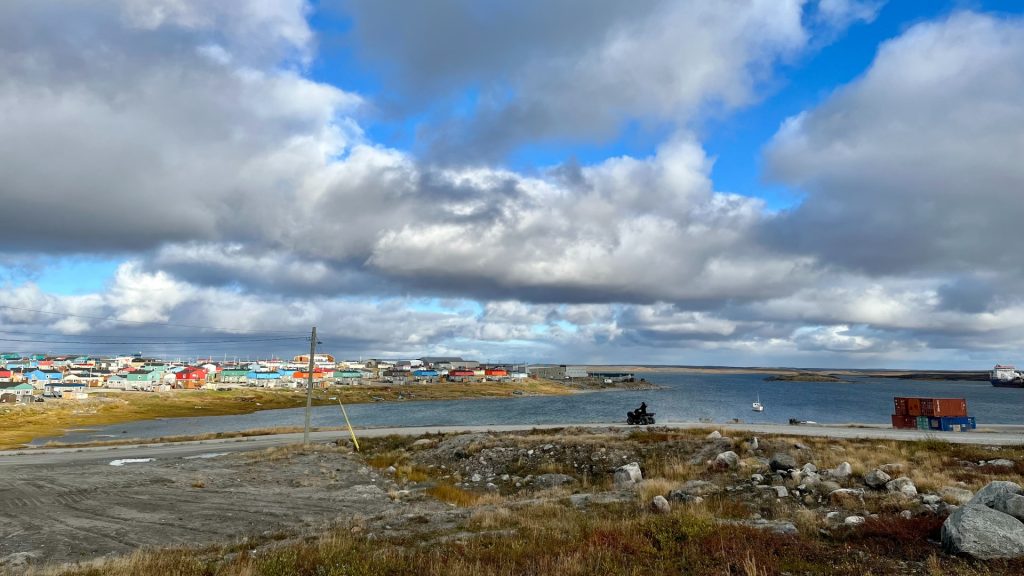
Kuujjuaq resident Jeannie May still remembers the day five years ago when, fearing for her safety during a domestic dispute with her then-partner, she called the police for help.
But when they arrived, she was the one that got arrested, something that turned her life upside down for years.
“Especially for women that have been in abusive relationships, it’s very hard to reach out for help,” May said. “And then when something like this happens, the trust is completely shattered. To this day, I don’t know how I’d ever call the cops for help again.”
May says many things went wrong that night, but if she had to boil it down to one thing, it’s that the southern institutions that make up the foundation of the justice system in North, from policing to courts to youth protection, aren’t adapted to the reality of Nunavik.
“When I’ve told my story publically, people reach out and say they’ve gone through the same thing,” May said. “We have so much domestic violence up North, but I think there’s a huge lack of training and empathy towards victims. And figuring out everything I had to go through afterwards? It’s a nightmare that never ends. ”
Southern institutions not working North
The trauma of the arrest, which resulted in physical injuries including losing two teeth, and spending the night in jail was just the beginning for May. In the ensuing years she had to fight to make sure she didn’t end up with a criminal record, and on top of that, learn how to navigate the police ethics complaint process.
A decision on her case is expected in the coming months.
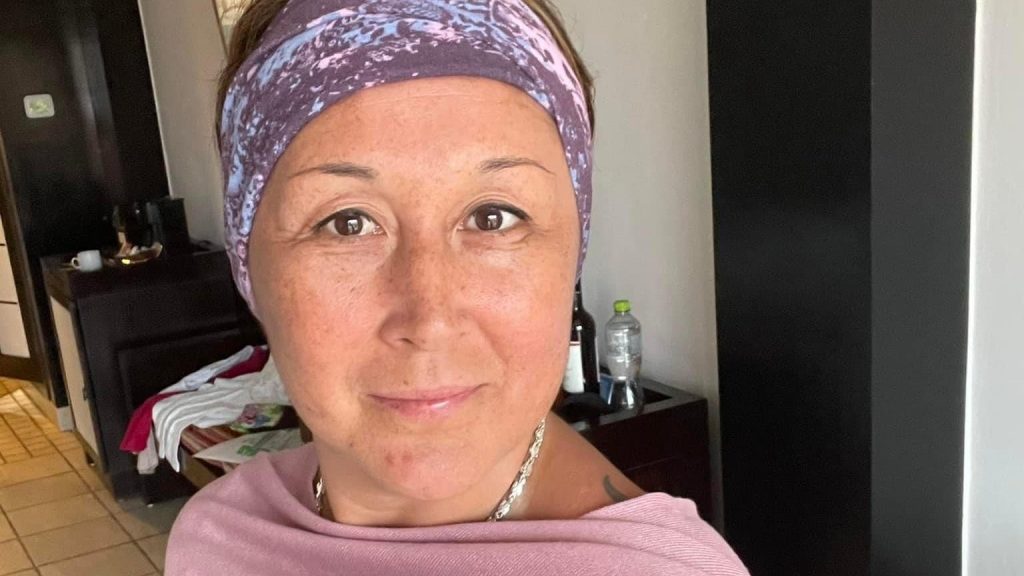
May says even with her fluency in English, it was overwhelming to navigate the police complaint process and justice system afterwards, but that for many in Nunavik, where Inuktitut is the first language, and most people aren’t comfortable in English, let alone French, the barriers can be unsurmountable.
“Most people don’t ever follow through to make complaints. They don’t know how and especially if you don’t know how to speak English, let alone open a computer, how in the world would you even know that was an option?”
May says the adversarial roles set up in the Quebec justice system can be devastating and is incongruous with Inuit values and practices that seeks to calm community tensions before things get to the breaking point.
“Imagine if me and my ex had been able to go to elders for help with the relationship when we started to have problems,” May said. “That’s the way it was for [Inuit] before. But the way the system from the South is set up now, it just doesn’t work.”
System’s failure ripples through communities
Nunavik has a population of approximately 13,000 people. There are 14 communities in the region and they are all fly-in only.
There are currently no resident judges or lawyers in the region so they have to be flown up from the southern part of the province.
The communities of Kuujjuaq and Puvirnituq each have a small courthouse, but elsewhere, court is required to sit wherever there is room, like in a school or a community gym.
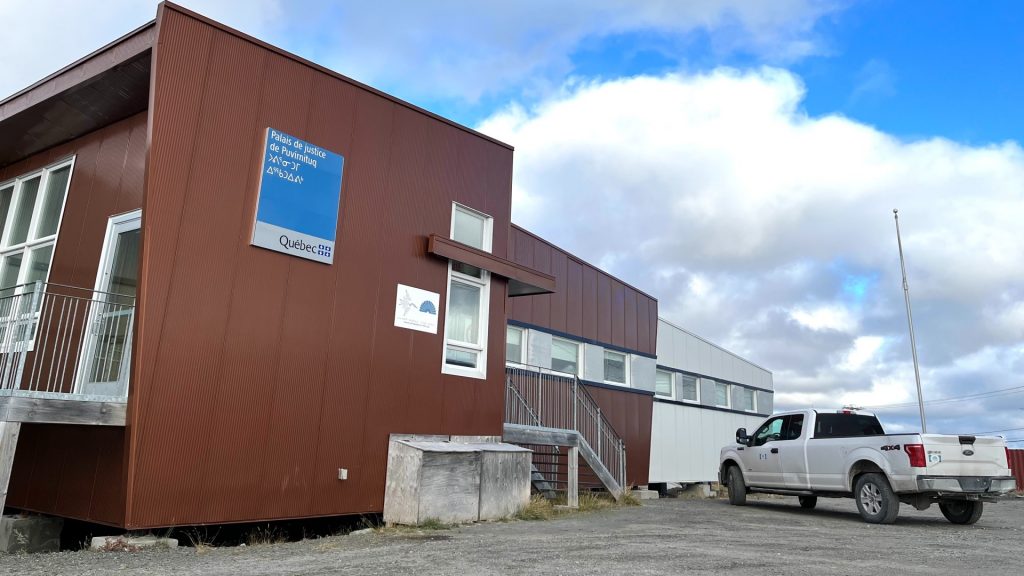
Unpredictable weather and mechanical problems frequently delay the arrival of court in the communities, and can prolong cases for years, putting undue stress on both victims and perpetrators.
Staffing problems can also delay cases. Most recently in July, 250 cases were postponed in Kuujjuaq because no judges were available to sit.
Paulusie Novalinga, a prominent Inuit leader from Puvirnituq and the village’s former mayor, says the stress on victims, offenders and community members from the repeated delays is hard to overstate.
“Even people charged with minor crimes wait months and months for their court session,” he said.
“Being in trouble with the law creates a lot of stress in each person because it’s always in the back of their mind and they can’t get it resolved. Pretty soon you start to ruin a person.”
And with no jails in Nunavik, if offenders are eventually convicted, they have to serve prison sentences down South, cutting them off from language, culture and family that could help redirect their lives, Novalinga said.
“We have no means to see or visit our relatives, where we could go and talk to them and maybe give them a sense of a better life. So many things are taken away from us by the justice system. Social services put the elders out of a job. Now it’s being done by college kids from far away down south who’ve never seen a native way of life.
“We weren’t a totally lawless or helpless society before, but the government came up and made it look that way.”
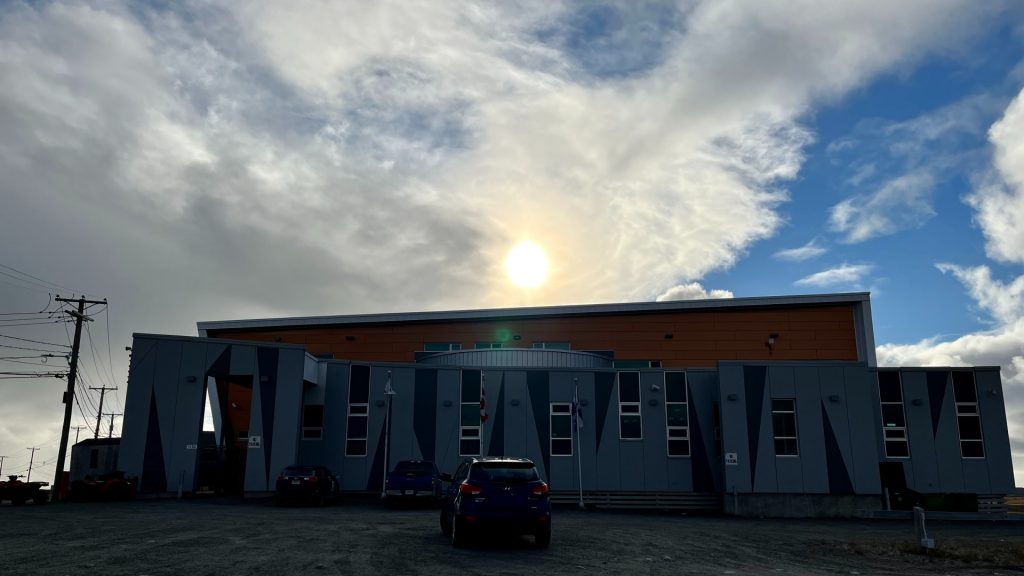
Charting a way forward
Suzy Watt, originally from Kuujjuaq, is a research assistant for Saimatsianiq, a three-year project set up to document and promote Inuit legal practices that could preserve social harmony in Nunavik, and foster knowledge transfer of those practices between elders and youth.
The project was designed after discussions with different justice-related organizations in Nunavik, including the Justice committees (Makivik Corporation); Sapummijiit, the crime victims assistance centre, the Nunavik Police Service and the Community Reintegration Program (Kativik Regional Government) and the Nunavik Police Service, and is coordinated by the Sentinel North Research Chair on the Relations with Inuit Societies at Laval University in Quebec.
The Saimatsianiq report will be completed in 2024 and will be presented to Justice Canada.
Watt, who is also studying towards a B.A. in Law at Carleton University in Ottawa, says she believes having Inuit values guide a reform of the way justice is practised in Nunavik is the only way to turn things around.
“Inuit have been here before there was a Quebec,” Watt said. “We had our ways of keeping justice in our communities that allowed us to survive here for thousands of years. Then the criminal justice system of the government comes and has been here about 155 years, but why keep trying to use something that isn’t working?”
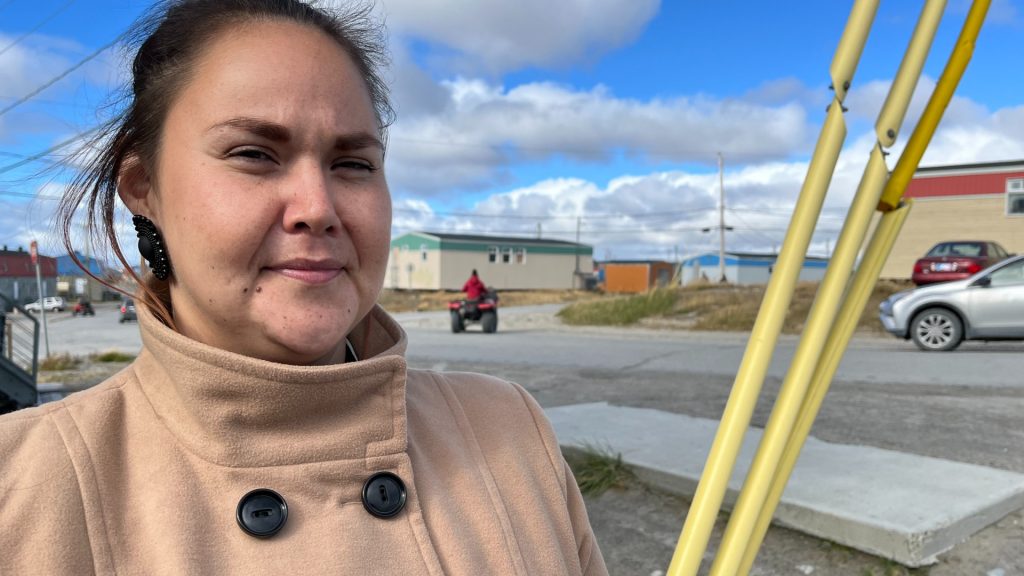
Watt says reestablishing harmony in the community is a key principle for Inuit, something at odds with the southern justice system’s focus on punishment.
“What we’re hearing in our workshops is that justice does not necessarily just mean correcting a wrong, but actually means creating a safer community for everyone,” she said.
Domestic disputes is one example, Watt said, where the southern justice system can often aggravate tensions instead of solving them, as when police are called, couples are usually required to stay separate until they’ve gone through the court system, which can sometimes take years.
In a small community, she says, that can have wide-reaching effects.
“In our values, relationships are very important, and this divides all kinds of relationships,” Watt said. “It affects the woman that now has to raise the children by herself. It has an impact the individuals’ families and family structure. And if you add in addiction or other social factors, often the children get taken away.
“It takes a lot of healing to change behaviour, and the person who’s offending has to recognize the wrong they did. But isolating him is not going to make him better. The Inuit way would be to actually build relations between the two and guide the [offending] individual to see an elder and receive proper counselling.
“In the past, punishment would be a last resort and would only come if the [offender] refused to change or refused to listen to what the community was telling him.”
Can the current election turn things around?
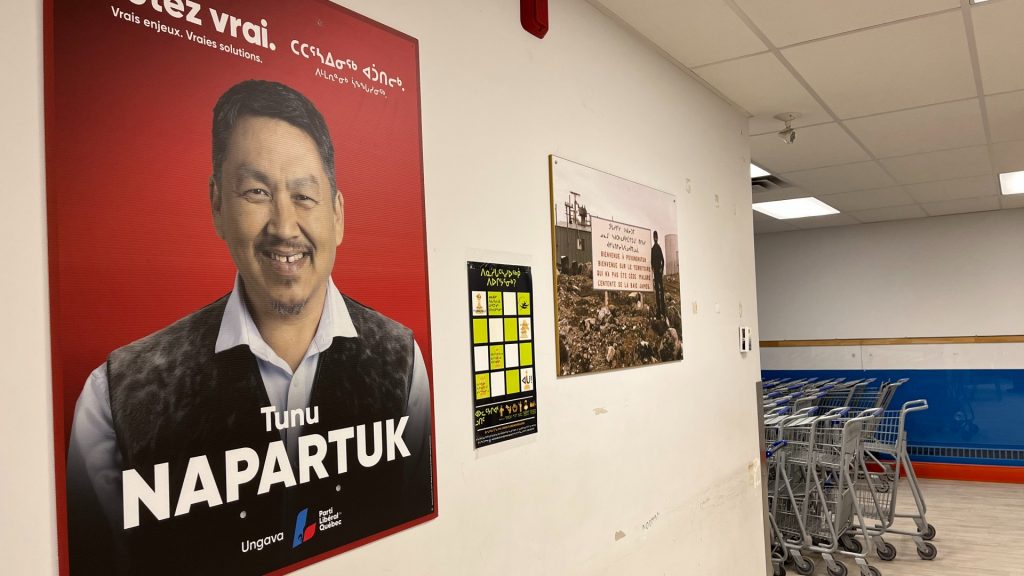
The crisis in the Nunavik justice system has been identified in reports going back to at least 1993, but there’s been little concrete action that’s moved the needle in a significant way.
Nunavik is in the election riding of Ungava, the largest geographical riding in Quebec. It covers around 850,000 square kilometres and has one of the smallest voting populations in the province, with 28,314 registered in the 2018 elections. It has a diverse population that besides the francophone majority includes several First Nations communities, along with Nunavik.
Novalinga says he plans to vote, but that unless Nunavik becomes its own riding at some point, it will be a challenge to have the population’s voice count on things like justice system reform.
“We need to develop a new riding for Inuit,” he said. “We’re mixed in with all kinds of southern regions, but we have nothing in common with them. It doesn’t make sense. And we’re so small a population we don’t have a chance to influence any election.”
For Jeannie May, the lack of focus on justice issues by the Ungava riding candidates so far has been surprising.
“One of the biggest failures of this (election) is no one is really campaigning on justice issues, something that has impacts everywhere; in health, in social services, in youth protection,” she said. “In the interviews and candidate profiles I’ve seen, justice is mostly not even mentioned, or just barely. It’s pretty sad.”
Indigenous candidates a step in the right direction
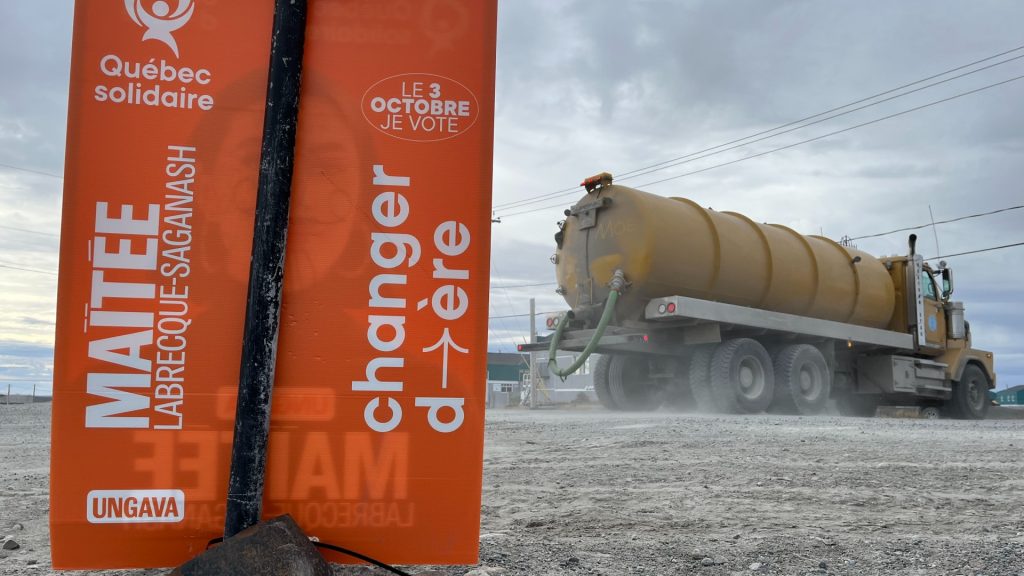
This year’s race has two Indigenous candidates. Tunu Napartuk, an Inuk and former mayor of Kuujjuaq is running for the Quebec Liberal Party, and Maïtée Labrecque-Saganash, who’s Cree, is the Quebec Solidaire candidate.
The other three candidates are Denis Lamothe for Coalition Avenir Québec, Christine Moore for the Parti Québécois and Nancy Lalancette for the Conservative Party of Quebec.
To read what the five Ungava riding candidates told Eye on the Arctic about how they want to improve the Nunavik justice system, click here.
Watt says having two Indigenous candidates is a step in the right direction.
“Having [Naparuk] from our region, and then [Labrecque-Saganash] who’s super creative in promoting Indigenous rights, that’s nice to see.”
May said even though she’s not hearing the focus on justice issues that she’d have liked to see during the campaign, she’s buoyed that two Indigenous candidates on the ballot.
“I’m hopeful, you know? We can’t run out of hope that things will change one day.”
Write to Eilís Quinn at eilis.quinn(at)cbc.ca
Related stories from around the North:
Canada: Justice system in northern Quebec straining at the seams and devastating victims, say Crown prosecutors, Eye on the Arctic
Finland: Police response times up to an hour slower in Arctic Finland, Yle News
United States: Violence Against Women bill would expand power of up to 30 Alaska tribal courts, Alaska Public Media

